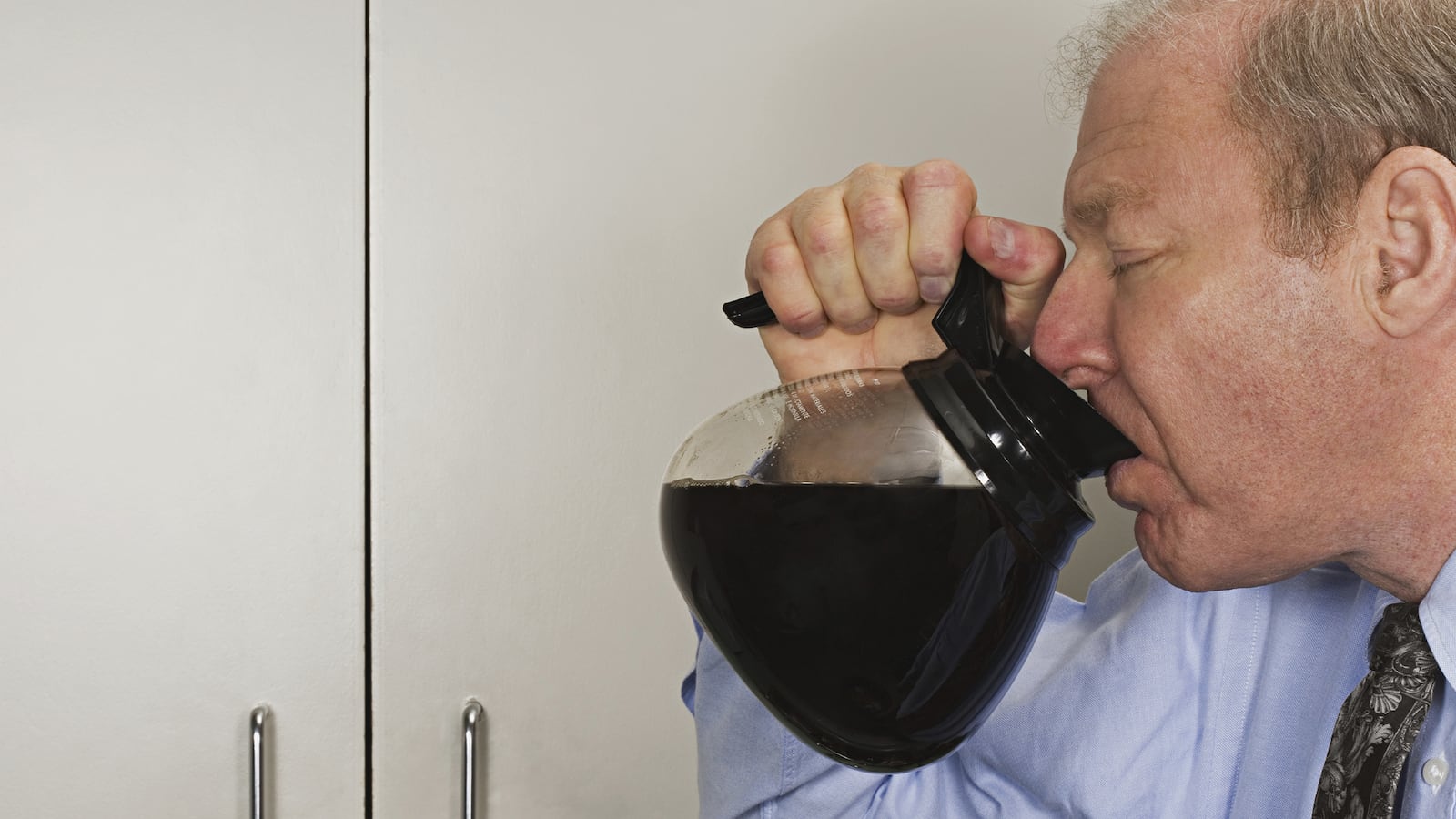By Kelly Fitzpatrick, Life by Daily Burn
Can’t get enough cold brew? Love your twice-a-day dose of Starbucks’ blonde roast? Whether you’re hooked on java for the taste or for that sweet hit of stimulating caffeine, you’ve probably wondered if coffee is good for you—or if sipping is sneakily bad for your health. The medical world has gone back and forth on coffee for what seems like millennia. (Back in the 1500s, it was even blamed for promiscuous behavior!) But today the tides have turned (we’ll clink mugs to that). In fact, new researched published in the journal Circulation now indicates that drinking as many as five cups of coffee per day could be beneficial to your health.
But is that the final word? We dove into the research to find out the real deal about your coffee consumption.
Coffee: The Good, The Bad and The Unknown
Like sour milk that ruined your mocha, not all studies are quite so favorable toward coffee. As recently as 2014, coffee consumption was linked to an increased risk of bladder cancer. So why trust the latest research?
Well, the study published in Circulation examined the habits of a large population (read: over 200,000) over a long period of time—always a good sign. Based on that data, researchers found that drinking one to five cups of coffee per day was associated with fewer incidences of death from cardiovascular disease, neurological diseases, and suicide, and that coffee consumption had no impact on the number of deaths from cancer.
Related: What's Worse: The Calories in Coffee or Candy?
But if you’re downing way more than five cups a day—are you doomed? Not quite. True java addicts will thank their lucky stars that the Circulation study also found that drinking more than five cups per day wasn’t linked to increased mortality, either. (Though older studies have seen a slightly higher incidence of heart attack and heart disease, especially among people who drink more than six cups of coffee a day. One 2013 study supported this, finding an association between drinking coffee and increased risk of death.)
Researchers believe the positive effects of sipping the strong stuff may be linked to “a series of molecules [in coffee] that may reduce insulin resistance and inflammation,” according to Dr. Robert Eckel, MD, a professor of medicine at the University of Colorado and the former president of the American Heart Association. (Here’s how to know if inflammation is hurting your health.) Moreover, coffee has antioxidant properties. Back in 2005, research suggested that coffee may be the number one source of antioxidants in the American diet.
If your head is swimming from all these studies, researchers have also conveniently done meta-analyses (translation: summaries) on the topic. Meta-analyses completed in July 2013, April 2014, and October 2014 all found that coffee either reduced the likelihood of or had no impact on the incidence of diseases like cancer and cardiovascular disease.
“Decades ago I was taught that coffee was associated with increases in blood pressure, [cardiovascular disease] and related mortality,” says Dr. Eckel. “This among other science seems to indicate the alternative.” In other words, go ahead and drink up.
How Much Coffee Is Too Much: The Problem with Caffeine
Before you start knocking back six cups of coffee a day—because, science—know that all that caffeine might be a concern. “In some, increases in blood pressure and sleep disturbances with related metabolic consequences could be a downside,” Dr. Eckel notes.
Related: 16 DIY Projects to Give Coffee Grounds New Life
Also, what you consider a “single coffee” could contain anywhere from 100 to 450 mg of caffeine based on the size of your cup, according to the Center for Science in the Public Interest (CSPI). According to the FDA, most people consume about 200 mg of caffeine each day (the amount in one to two five-ounce cups of coffee) — and 600 mg or more is considered too much. To put this in perspective, one Starbucks Venti Coffee (20 fl. oz.) contains about 415 mg of caffeine.
Feel jittery after just one cup? Decaf coffee offers the same health benefits as regular, according to researchers. The study’s authors believe the positive effects come from compounds unrelated to coffee’s caffeine content, so it is possible to glean some health benefits without getting crazily over-caffeinated.
Dr. Eckel is also quick to point out that all of the positive effects of coffee were only seen in non-smokers. Older studies have suggested that combining coffee and smoking can actually have a greater negative health impact than smoking alone, and both increase blood pressure, which could be dangerous for those who already have high blood pressure.
The moral of the story? According to Dr. Eckel, the health benefits found in the Circulation study aren’t quite strong enough to merit increasing your coffee intake or starting a coffee habit if you hate the taste. But for those of us who can’t live without a few cups of coffee per day, we’re probably in the clear—and might even be doing our bodies a favor.





